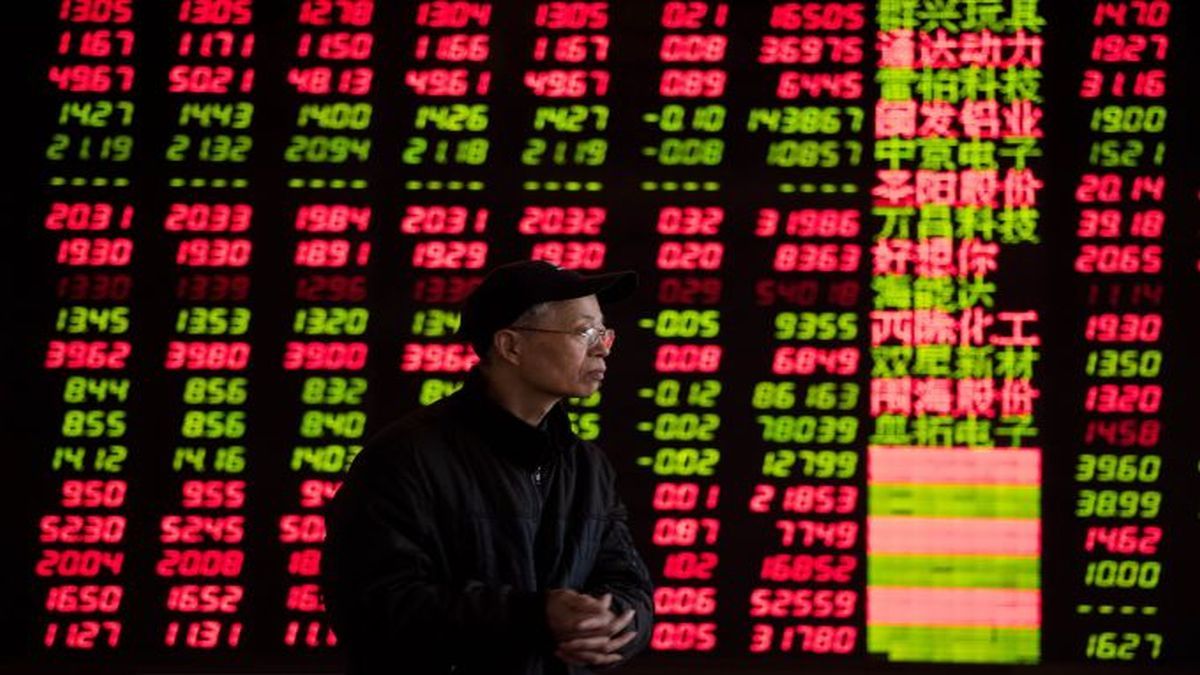He real estate and construction sector It long represented more than a quarter of China’s Gross Domestic Product (GDP). But, since 2020, Beijing has tightened access to credit for real estate developers, which brought giants in the sector, such as Evergrande or Country Garden, to the brink of bankruptcy.
Unfinished works, economic slowdown and a drop in priceswhich devalue properties, have since dissuaded the Chinese from investing in brick. And, in this context, to stimulate the sector, several Chinese megacities announced on Sunday an easing of local restrictions on home purchases.
The measures taken by the main cities in China
In the southern city of Guangzhou, with nearly 19 million inhabitants, an individual could not legally buy more than two homes to avoid speculation during the boom years. As of this Monday, this restriction no longer exists and the real estate market It is no longer reserved only for the inhabitants of this city.
Neighboring Shenzhen, with about 18 million inhabitants, also adopted a similar provision, but only in its peripheral areas. In addition, The economic powerhouse Shanghai, where nearly 25 million people live, lowered the down payment required to purchase a first home.
The authorities also announced on Sunday a reduction in mortgage rates for the purchase of primary and secondary residences.
The package of measures encouraged Asian investorswith strong increases in the Chinese stock markets.
That of Shanghai, for example, shot up to 8.06%, and that of Shenzhen, the second largest stock exchange in China, reached 11%. For its part, the Hong Kong market, which closed later, rose 2.43%.
Stimulus measures in China helped offset a poor manufacturing survey and lifted the CSI300 index by another 7.7%, after already rising 16% last week. The Shanghai Composite rose 7.1%, up from 13% last week.
The context of confrontation in the East worries the markets
The Continued Israeli attacks on Lebanon added geopolitical uncertainty to the mixalthough oil prices remained contained due to the risk of an increase in supply.
The week is full of important economic data in the US, such as the payrolls report, which could decide whether the Federal Reserve applies another rate cut in November.
The Nikkei led the first movements with a fall of 4.6%, at a time when investors were eagerly awaiting further guidance from new Prime Minister Shigeru Ishiba, who has been critical of the Bank of Japan’s monetary easing policies in the past.
However, over the weekend he was more conciliatory and stated that monetary policy “must remain expansionary” given the state of the economy.
The dollar vs the yen
This helped dollar to remain around 142.10 yen, after falling 1.8% on Friday from a high of 146.49.
“Ishiba has supported the Bank of Japan’s intention to normalize monetary policy, although leaving doubts about the pace and timing,” said Jun Takazawa, HSBC economist.
“If additional stimulus measures are carried out, this would also likely reinforce the spending recovery trend, thus strengthening the BoJ’s conviction to raise interest rates at a gradual pace,” he added. “Overall, we continue to see a constructive outlook for Japan.”
In China, The central bank said it would ask banks to lower mortgage rates on existing home loans by the end of October, probably by an average of 50 basis points.
This follows a flurry of monetary, fiscal and liquidity support measures announced last week in Beijing’s biggest stimulus package since the pandemic.
“We believe that deflation risks are now being taken more seriously“said Christian Keller, head of economic analysis at Barclays. “At the same time, the Politburo suggests that a consensus is likely to have been reached in Beijing that fiscal stimulus and central government leverage are necessary to halt the slowdown.” .
“This is an important change in a market that was looking for something more than the minimum.”
Is the Chinese economy taking off?
These rebounds continued last week’s expansions, after the stimulus measures adopted by the Chinese authorities to reverse the slowdown of the world’s second largest economy.
Yan Yuejin, deputy director of the E-house China Research and Development Institute, told AFP that the measures respond to “pressures” of the real estate market. “There are fewer people buying properties these days,” he said.
“If no one buys real estate, “This will affect consumption and, consequently, growth,” given the weight of the construction sector in the Chinese economy, he noted.
Source: Ambito




